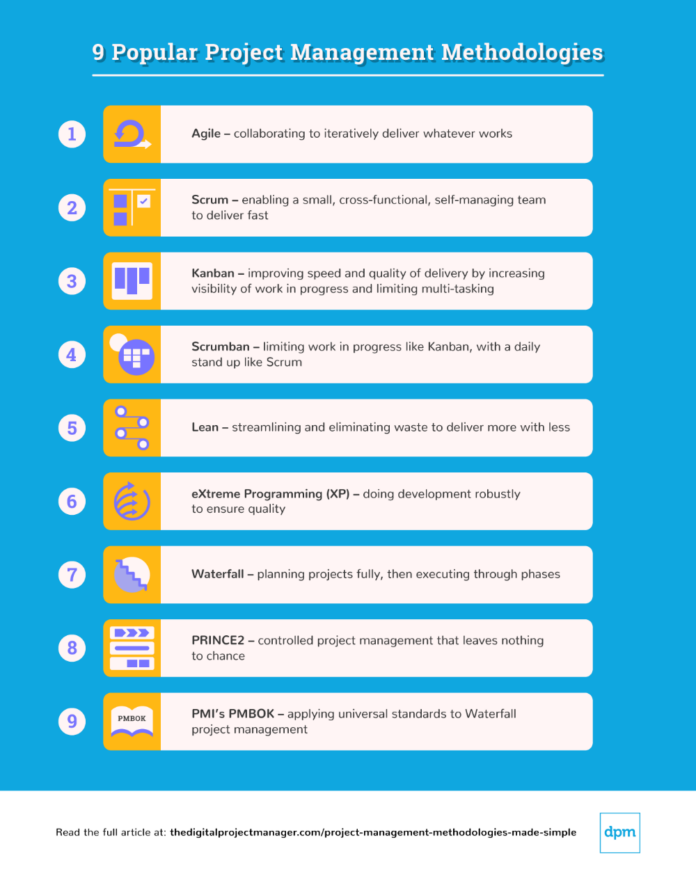Projectxa0managementxa0basicsxa0forxa0beginners PDF Free Download
Meaning of Project
Most organizations are required to perform various tasks as a routine. Each task is unique with a specific purpose or need. The projects are different in size and type. A project is a combination of interrelated activities with well-defined objectives to be completed in a specific time period. The activities are to be performed in a specified sequence or order and require resources such as money, materials, facilities, and space.
A project is a temporary Endeavour undertaken to create a unique product or service.†– Institute of Project Management
Characteristics of Projects
- Well-defined objectives
- Large and complex
- Non-recurring
- Uncertain duration
- Completion deadline
- Project life cycle
- Uniqueness
- Teamwork
- Conflict for resources
- A separate disposable team
- Inter-dependencies
- Performance measurement
What is Project management?
Project management is the process of achieving project objectives through the traditional organizational structure and over the specialties of the individuals concerned. Project management is applicable for any (unique, one time, one of a kind) undertaking concerned with a specify and objectives†– Professor Harold Kerzner
Objectives of Project Management
- Interdependency and complexity
- Sharing of resources
- Size of the project
- Importance of the project
- Changes in the market
Significance of project management
- Shortening of the product life cycle
- Global competition
- Cost control
- Explosion of knowledge
- Focus on customer
Explain the meaning of the project life cycle
Every project is unique and is composed of a number of activities. These activities are interrelated and dependent on each other. There is a systematic and logical sequence of performing these activities.
The sequence follows the order in which these activities are to be carried out. The duration in which these activities are to be performed is known as their life span. Hence, the entire sequence of activities to be performed from the beginning to the end of a project is called the ‘Project Life Cycle’ (PLC).
Life Cycle of a Project
The sequence of the groups of activities through which the project passes from ‘conception to completion’ is known as its life cycle.
Phases of a project life cycle in project management
Broadly, the life cycle of a project may e divided into the following five phases
- Phase 1: Project Conception
- Phase 2: Project feasibility analysis
- Phase 3: Project Appraisal Phase
- Phase 4: Project Implementation, Monitoring, and Control
- Phase 5: Project Evaluation and termination
Project Management Full Course In 8 Hours
In this video on Project Management Full Course, we shall begin learning the basics of project management. As we move forward, we shall verse ourselves with different project management concepts like project planning, project time, cost quality, and communication management.
We will learn about project manager roles and different project management tools. Finally, we shall see some Project Management interview questions to excel in any Project Management interview. By the end of this course, you’ll have everything you need to know about Project Management. So without further ado, let’s jump in!
- What Is Project Management?
- Project Planning In Project Management
- Project Planning
- Project Time Management
- PMP® Cost Management 5th Edition
- Project Quality Management PMBOK 5
- Project Management Framework
- PMP Communication Management
- PMP® Human Resource Management
- PMP® Risk Management PMBOK 5
- PMP® Stakeholder Management
- PMP® Network Diagram
- PMP® Scope Management
- PMP® Integration Management
- PMP® Develop Project Charter
- Project Life Cycle vs Project Management process
- PMP Earned Value Management
- PMP® Critical Path Methods
- Top 10 Project Management Tools 2020
- Trello Tutorial
- Agile Project Management Tutorial
- PMP 6th Edition Training Video
- Top 10 Reasons To Get PMP Certified
- Project Manager Roles And Responsibilities
- Project Manager Interview Questions And Answers


